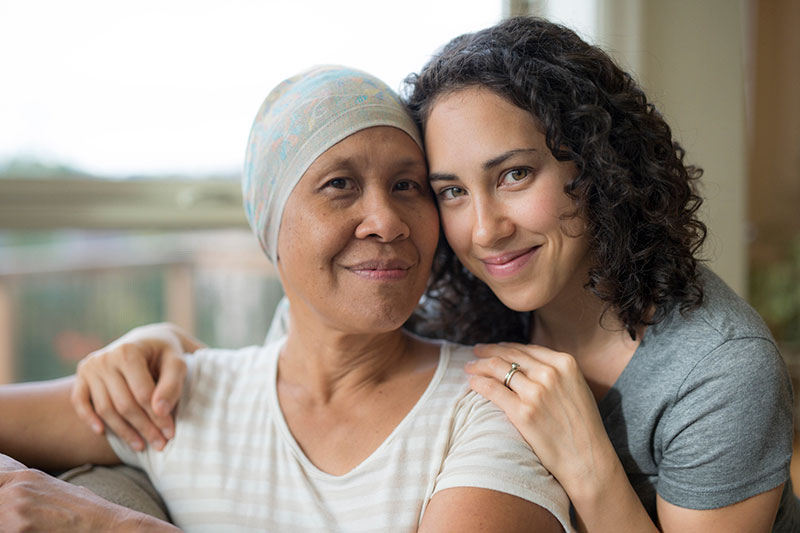
There are a number of ways in which in-home care services can help a loved one with cancer care.
If an older adult you love receives a cancer diagnosis, it may feel as if everything is different. Things that were once a top concern pales when compared with the call to do whatever you can to provide support for the person you love through this unexpected journey.
If you’re not sure where to even start in your role as a cancer caregiver, our senior care team is here to provide support. Take a deep breath, grab a cup of coffee, and read through the advice below.
What Will the Person with Cancer Need?
Most of the time, cancer treatments are delivered in outpatient settings rather than during a hospital stay. Because of this, transportation to and from treatments is one of the more important parts of cancer care. In addition, the person will likely need:
- Assistance with symptom control. Chemotherapy as well as other cancer treatments, in addition to the cancer itself, often cause exhaustion, nausea, vomiting, diarrhea, constipation, changes in appetite, pain, and more. You can provide support by making sure the person remains hydrated, getting in touch with the doctor about any concerns and implementing suggestions, and making light, healthy meals according to his or her tolerance level and tastes.
- Assistance with household chores. Having help with housekeeping, laundry, yardwork, grocery shopping and other errands is quite often a great relief for someone fighting cancer.
- A healthcare liaison. Keeping an eye on all the medical elements of cancer care is often overwhelming. See if the person would like you to sit in on doctors’ appointments to take down notes, ask questions, relay information back to the medical team, etc.
- A person to listen. Oftentimes, people have a tendency to shy away from hard conversations. For a person with cancer, having a trusted friend or family member there to listen to the difficulties being faced, fears for the future, and anything else that comes to mind is important. Your thoughtful, non-judgmental presence could be the most significant gift you have to offer.
What Will YOU Need?
Self-care is very important while caring for someone with cancer to alleviate stress and avoid depression and caregiver burnout. Make sure to specify ongoing, scheduled times away for pastimes that are comforting: reading, going on a walk, soaking in a warm bath, engaging in hobbies you enjoy, etc.
You’ll also need an outlet for the emotions that emerge during caregiving. Find a skilled counselor to meet with or a reliable friend, family member, or clergy member to talk to, write in a journal, or join a support group for cancer caregivers.
If you are having trouble finding time to take care of yourself, let Absolute Companion Care, a provider of home care in White Hall, MD and the surrounding areas, help. Our care providers are fully trained and experienced in supporting people with cancer as well as other chronic health conditions, and are available for as much or as little time as you need to step in while you step away.
Reach out to us at 410-357-9640 any time for additional cancer care resources or to make arrangements for a complimentary in-home consultation to learn more about our home and respite care services.
